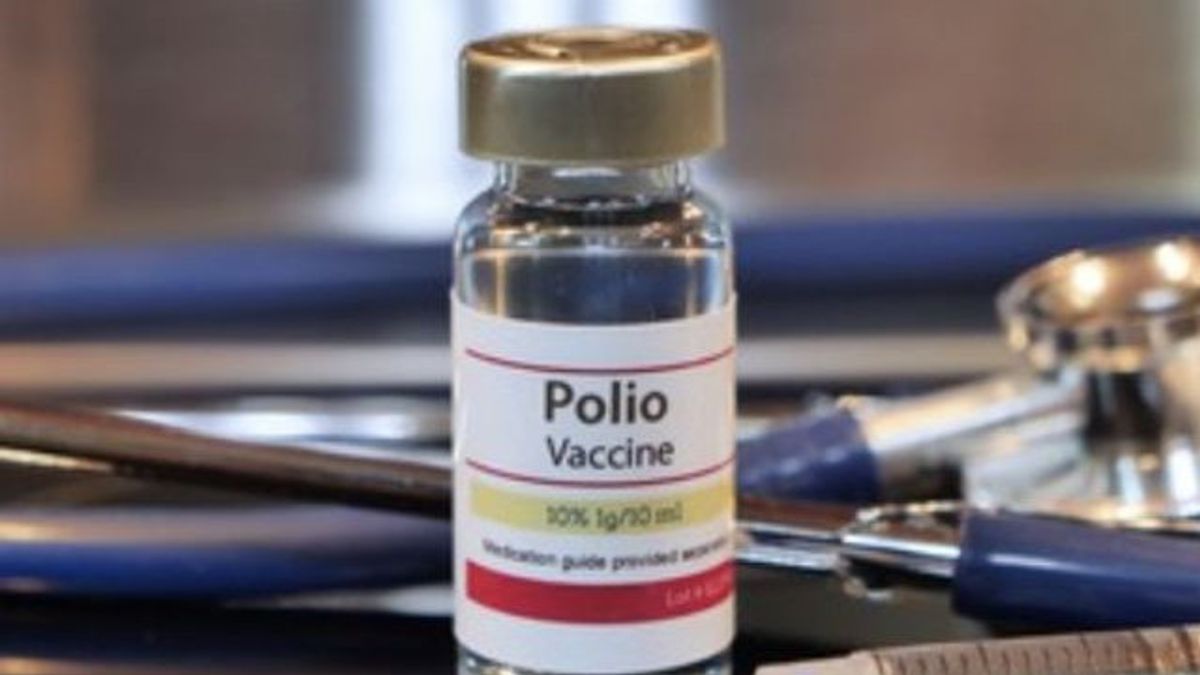JAKARTA - The immunization rate of polio in children is considered to have plummeted during the COVID-19 pandemic and this has triggered extraordinary cases (KLB) in a number of areas at this time.
Head of the Communication and Public Service Bureau of the Ministry of Health (Kemenkes) Dr. Siti Nadia Tarmizi said the coverage of polio immunizations that fell during the pandemic was the trigger for the KLB.
"The polio KLB has occurred, because since the COVID-19 pandemic in 2020, 2021, 2022, the complete basic immunization coverage has dropped to 40--50 percent. For decades, it was 80--90 percent," he said after attending the agenda of the COVID-19 Pandemic Handling Award, quoted by ANTARA, Monday, March 20.
He explained that Indonesia had entered the eradication stage of polio, where the number of cases had to be reduced to zero in all regions.
However, due to the decline in polio immunization coverage, the group immunity that has been built for decades through routine immunization has weakened.
The Ministry of Health reports that there are currently a number of polio cases in Indonesia, including one case in Purwakarta, West Java, and three cases in Pidie, Aceh.
"In 2020, Indonesia is still safe, because herd immunity is still there. In 2021 it has gone down, plus there are new children who have been born and have not been vaccinated," he said.
In 2023, the Ministry of Health will intensify the National Children's Immunization Month (BIAN) and School Children's Immunization Month (BIAS) programs.
The Ministry of Health has developed a strategy to promote routine immunization in children to provide protection from immunization-preventable diseases (PD3I).
First, adding three types of routine immunization to children who previously had 11 vaccines, including polio, to 14 vaccines. The vaccines added are the Rotavirus vaccine for anti-diary and the PCV vaccine for anti- pneumonia targeted for children, as well as the HPV vaccine to prevent cervical cancer.
The vaccine is given to 5th and 6th grade children elementary school to prevent potential cervical cancer when children become adults.
The target of accelerating the BIAN and BIAS programs in Java-Bali has reached 90 percent. Especially outside Java-Bali, it ranges from 80 percent of participants.
"We'll see first the vaccination coverage. What is certain is that if there is a KLB, immediately break the immunization (ORI) response, so all children are immediately vaccinated," he said.
One of the challenges still faced in the BIAN and BIAS programs is the rejection of families, such as fear of side effects, halal issues and haram vaccine products.
"Most vaccines are halal, but there is a mixture of rubella measles (MR) that doesn't have a fatwa yet. Because there is no type of vaccine available," he said.
In addition, there is also misinformation about vaccines for children, including regarding hoax images and so on, said Siti Nadia Tarmizi.
The English, Chinese, Japanese, Arabic, and French versions are automatically generated by the AI. So there may still be inaccuracies in translating, please always see Indonesian as our main language. (system supported by DigitalSiber.id)








